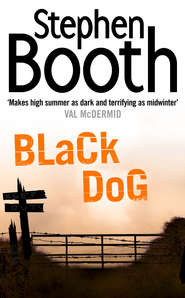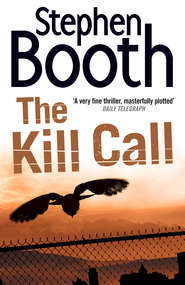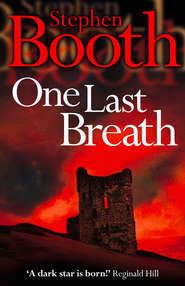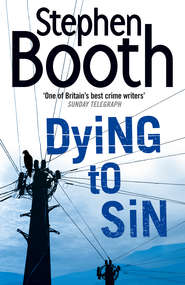По всем вопросам обращайтесь на: info@litportal.ru
(©) 2003-2024.
✖
Scared to Live
Автор
Год написания книги
2019
Настройки чтения
Размер шрифта
Высота строк
Поля
‘A black car possibly, but a dark colour certainly.’
Kessen looked surprised, and perhaps a bit irritated. ‘Why do you say that?’
‘Well, I’m betting if they drove openly across this field they were hoping that residents living nearby would think they were out lamping.’
‘Lamping?’
‘That’s when people go out into the countryside to shoot animals at night. Lampers use a bright light to dazzle their quarry.’
‘Yes, I know about that – rabbits and such like.’
‘Well, not just rabbits. Badgers, deer, sheep – you name it. Anything that’ll stand up and be shot at.’ Abbott’s eyes flickered around the group. ‘DC Cooper will tell you about it. I’m sure he must have done a bit of lamping himself.’
‘Well …’ began Cooper. But no one was listening to him.
‘But the thing is,’ said Abbott, ‘if local people thought somebody was out lamping that night, they probably wouldn’t have bothered to dial 999, even when they heard shots.’
‘You’re kidding.’
‘It’s different in the country – you get used to hearing gunshots. In the city, someone might call the police, but out here you wonder how many brace they’ve potted.’
‘I understand that. But the colour of the vehicle …?’
‘Well, you wouldn’t go lamping in a white car, would you? You want your target to focus on the light, not on the paintwork of your bonnet.’
‘Nothing else, apart from the tyre marks?’
‘Nope. I was hoping for some shell casings. A brass casing could give us some prints, or there might be marks left by the weapon’s extractor or firing pin. But there’s nothing here that we can see.’
‘All right. Thanks.’
‘So it looks as though the suspect didn’t bother going into the house. Clever.’
‘Clever?’
‘Well, it makes it more difficult for us. We always have a better chance of coming up with something from a closed scene. Like the bedroom, for instance. But a ploughed field? And two days after the incident? Better start praying for a miracle.’
Kessen stared at the house. ‘All right, it was clever. But I wonder what the shooter did to get Rose Shepherd’s attention.’
‘What do you mean?’ asked Hitchens.
‘Well, if he made the hit from the field, he must have found some way to get his victim to the window. I can’t believe he was prepared to sit out here all night on the off-chance that she’d decide to get out of bed and take a look at the stars.’
‘A phone call, I reckon,’ said Hitchens. ‘It’d be easy enough to phone her on a mobile from the car.’
‘Yes.’
‘It’s starting to look like a professional job, isn’t it?’
‘I’m afraid so.’ Kessen nodded. ‘Yes, he could easily have phoned Miss Shepherd and woken her up. But what did he say to get her to come to the window? What could he have said that would make her walk straight into his sights?’
While Abbott organized a detailed search of the field, Cooper took the chance to report what the postman Bernie Wilding had told him about never seeing Miss Shepherd’s face clearly.
‘I could understand it if she was physically disfigured,’ said Hitchens. ‘If she was a burns victim, or something. That would explain why she never went out, and didn’t want people to see her.’
‘But she wasn’t disfigured, either in real life or in her passport photo. How old is that passport? When was it issued?’
‘Issued May 2000. Expires 2010.’
‘What about motive?’ asked Fry. ‘Do you think someone in the village might have had a grudge against her?’
‘If she didn’t have contact with anyone in the village, how could someone have a grudge against her?’
‘Well, I don’t know. Maybe that’s why she didn’t have contact with anyone. We don’t know anything about her history, so we can’t guess. Where do we start?’
‘There’s one place we can start,’ said Kessen. ‘We need a list of individuals in the locality with firearms certificates. What about this farmer, what’s his name?’
‘Neville Cross?’
‘He’s a neighbour, isn’t he?’
‘He owns the land at the back of Bain House. But I think his farmhouse is way down there, two fields away.’
‘He’ll have a firearms certificate. Most farmers do – for a shotgun, at least. But maybe he has a serious rabbit problem and needs a rifle.’
‘Yes, and maybe he’s a retired SAS sniper,’ said Hitchens sceptically.
Kessen spun sharply on his heel. ‘Well, maybe he is. We don’t know that he isn’t, do we, Paul? This is a man who had the opportunity – the shots were fired from his property. No one would question Mr Cross driving over his own land, even at night. Perhaps no one would question him taking his rifle with him either.’
‘We don’t know that he has a rifle,’ persisted the DI.
‘He’s also the man who reported the open window at the back of the house,’ said Kessen, as if Hitchens hadn’t spoken. ‘Thereby ensuring that he was involved in the investigation as a witness. You know the typical behaviour, Paul.’
‘He was alerted by the postman that something might be wrong. That’s why he took a look.’
‘That doesn’t mean he wouldn’t have done it anyway, sooner or later. We don’t know, do we?’
‘We don’t know anything,’ said Hitchens.
‘That’s why we have to start by eliminating whoever we can get hold of locally. And we’ll see what that leads us to.’
‘What if he doesn’t admit to having a gun? We don’t have any justification for a search.’
‘We could ask him to co-operate with a gunshot residue test. At least we’d know if he’d fired a gun recently.’
Listening to the discussion between the detectives, Wayne Abbott shook his head. ‘Sorry, it’s too long since the shots were fired. A GSR test has to be done within the first few hours to get meaningful results. After forty-eight hours, any suspect will have washed and wiped his hands enough to have removed all detectable traces.’
‘A trace metal test to determine whether he’s held a firearm?’











